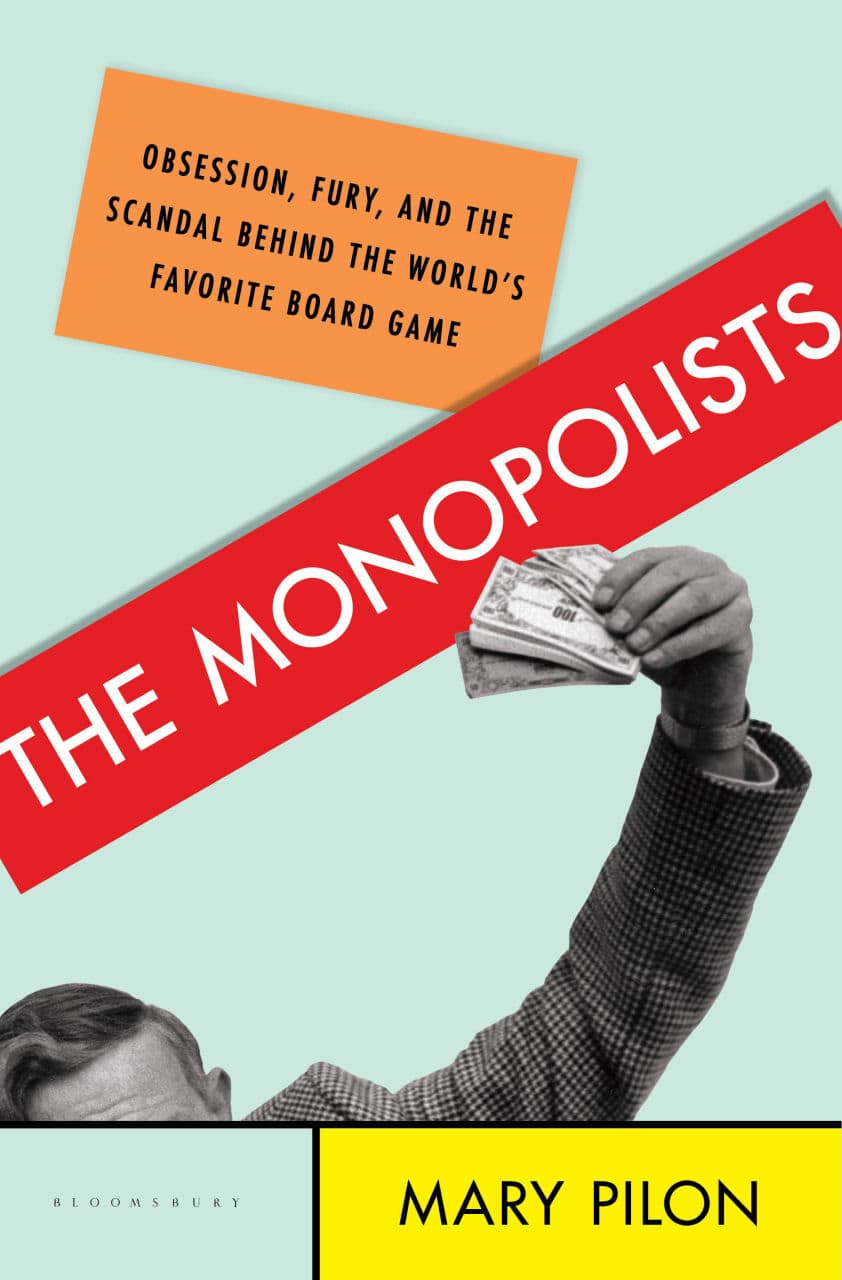Advertisement
'The Monopolists' Uncovers The Origins Of Monopoly
ResumeDo not pass Go. Do not collect $200. Instead, prepare to learn that everything you thought you knew about the history of the game of "Monopoly" is wrong.
That is, unless you’re one of the lucky people who’ve already read Mary Pilon’s new book, “The Monopolists.” The author joined Only A Game's Karen Given.
Highlights From Karen's Conversation With Mary Pilon
KG: I want to start with what we think we know about "Monopoly." According to Parker Brothers' lore, during the Great Depression a salesman named Charles Darrow was out of work, struggling to feed his family, when he headed down to his basement with an idea. And I think I'll let you take the story from there.

MP: Right, so the idea was that this guy, you know, during The Depression, times are tough, he goes into his basement and innovates. He creates this game. And Parker Brothers at the time was also reeling, like a lot of companies. He creates this game Monopoly, it becomes a mega-bestseller, everybody becomes fabulously rich and it's a fantastic, happy, Cinderella, Horatio Alger tale.
KG: Well the real story — and I'm going to try to get it right: Charles Darrow actually copied the game from some friends who had played the game with fellow Quakers who had learned the game from a couple of guys who had played in college, completely unaware that the whole thing traced back to a woman named Lizzie Magie.
MP: Correct, that's very good. The game actually originated with a woman in 1904, long before, obviously, the Great Depression. She received a patent for her "Landlord's Game" in 1904 and from there the game just becomes very popular among a who's-who of left wing America. It's much more of a folk game, so people adapt it and modify it.
KG: When Parker Brothers bought the game from Charles Darrow for $7,000-plus residuals in 1935, they probably didn’t know the game was already 30 years old. But the company immediately set out to create this paper trail that would establish the work as Darrow’s. Why were they so paranoid?
MP: Well I think that it's important to remember when we look at all of this history — including Lizzie Magie and the early players — that nobody knew they were sitting on a blockbuster and a thing that we would still be talking about, you know, all this time later. So they tried to buy up other versions of the game because Darrow wasn't the first person who tried to sell the game on his own.
You know, obviously Lizzie Magie had sold her "Landlord's Game;" there was the guy named Dan Lehman who sold a game called "Finance;" there was a guy named Rudy Copeland who'd sold a game called "Inflation" out of Texas. So there were other versions of the game on the market and their rival, Milton Bradley, actually had a game called "Easy Money."
KG: We might never have known this story if not for Ralph Anspach, an economics professor at San Francisco State. He sued for the right to produce his own game, called "Anti-Monopoly," and spent a decade hunting down everyone who had played the game before Darrow “invented” it. I have to think though, some of his quest had to be due to his own curiosity.
KG: It seems like there are a thousand varieties of "Monopoly" — "Nintendo Monopoly," "Doctor Who Monopoly," "The Godfather Monopoly." Is this game more popular than ever?
MP: I think it is. But I think it's been funny to watch. You mentioned some of these spin-off games — in a weird way that's returned to what the game was before, right? I mean you think of the 1935 kind of classic "Monopoly." But before that existed, people made things their own. Whenever I see different flavors of the game out there, I think "Oh, this is so funny." People are imitating something like a century ago and have no idea that they're doing it.
Karen's Thoughts On 'The Monopolists'
Choosing a book from the Only A Game bookshelf can be a daunting task. We have to weigh all sorts of factors. Does the book cover a sport that’s in season? Have we covered the subject too recently? Is this actually sports?
[sidebar title="An Excerpt From 'The Monopolists'" width="630" align="right"]Read an excerpt from 'The Monopolists' by Mary Pilon about the game's role during World War II.[/sidebar]
I was a bit concerned about that last question when I picked up Mary Pilon’s, "The Monopolists." After all, "Monopoly" might be competitive, but it definitely isn’t athletic. But, after the first few pages, I didn’t care anymore.
On the first two pages of her history of "Monopoly," Pilon recounts the oft-told — but almost entirely fictional — "Monopoly" origin story. Over the rest of the book’s 261 pages, the real history of the game unfolds like a mystery. There were times when I considered Googling the answers, just because I was so eager to know the truth. But I knew I couldn’t deprive myself of the fun of following Pilon on her journey.
Pilon follows economics professor Ralph Anspach as he takes on Parker Brothers for the right to produce his own, "Anti-Monopoly" board game. Along the way, Anspach finds evidence in a spelling error, forgotten patents and a very angry group of Quakers.
So, I understand that you might have been hoping for a more “sporty” book on this week’s show, but I don’t apologize for my choice. Sport or no, "The Monopolists" is a good read.
This segment aired on February 21, 2015.